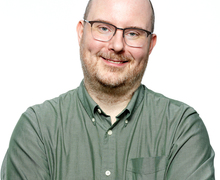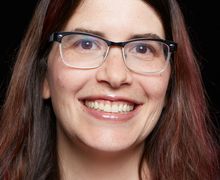Interview with Bradley M. Kuhn and Karen Sandler
Can Anyone Live in Full Software Freedom Today?. Confessions of Activists Who Try But Fail to Avoid Proprietary Software


Bradley M. Kuhn and Karen Sandler will give a talk about Can Anyone Live in Full Software Freedom Today?. Confessions of Activists Who Try But Fail to Avoid Proprietary Software at FOSDEM 2019.
Q: Could you briefly introduce yourself?
We are Karen Sandler and Bradley M. Kuhn of the Software Freedom Conservancy. Conservancy is a nonprofit charity dedicated to the public good of FOSS. Its programs include being the foundation of almost 50 projects like Git, Samba, Inkscape, Coreboot, Etherpad and Selenium (to name just a few). In addition to being a comprehensive home for FOSS projects, we also pursue broader FOSS initiatives, such as working with Linux kernel developers who want our help enforcing the GPL, and Outreachy (an internship program to promote diversity in free software).
Karen is Executive Director of the organization. Karen is personally passionate about software freedom in part because she has a heart condition and relies on an implanted heart device for which she can’t see the source code in her own body. (You can see a prior talk Karen’s given about this.) As a former programmer and a lawyer, Karen works to promote software freedom as a cornerstone of ethical technology.
Bradley is the Distinguished Technologist at Conservancy. Bradley is always ready to do whatever it takes to keep Software Freedom Conservancy operating to help preserve, protect and promote software freedom. Bradley worked early in his career as a sysadmin and developer at for-profit companies, and discovered through this work that proprietary licensing prioritized profits over the rights of users to control their own technology. Bradley has been a professional software freedom activist since the late 1990s, including as the Executive Director of the Free Software Foundation, and even held Karen’s job (Executive Director of Conservancy) before he decided management was not for him. Bradley now works on a myriad of issues for Conservancy: from the technical to the mundane, always with a focus on doing activities that can most help Free Software developers focus on their work.
We both are interested in the personal and societal issues around software freedom. We both choose to work for a charity (rather than the for-profit companies that often try to recruit us) because we want our mandate when we wake up in the morning to be: “what can I do today to serve the public good?”. We are both as “purist” about respecting software freedom (for both ourselves and others) and we go out of our way to eschew proprietary software.
Q: What will your talk be about, exactly? Why this topic?
We strive more than any other people in the world to avoid using and interacting with proprietary software. Yet, we’ve found that battle more difficult in the last few years. Proprietary software has unfortunately become necessary to efficiently complete basic tasks. While we are willing to inconvenience ourselves for the principle of software freedom (including working harder, spending more time, and paying more money to avoid proprietary software), it’s recently become impossible for us to remain functional at our jobs and live our lives in full software freedom.
We stand together on a slippery slope toward more proprietarization, from drivers and firmware to web services. While our resolve is to avoid compromising our principles, we find a fundamental paradox: every day, it’s harder to operate in an industrialized society while avoiding proprietary software, even while, every day, there are more lines of freely licensed code than ever in history. We will explore the causes of this paradox in our FOSDEM keynote.
We know we are not alone. As the situation deteriorates around us, our community must cooperate to ameliorate this disaster. We need to help each other and communicate about thoughtful choices when drawing lines that we’d rather not draw. We fool ourselves if we believe we can live in our modern society while avoiding proprietary software. The situation is dire. There are many examples of where you simply cannot reasonably function without agreeing to interact with proprietary software.
In this talk, we’ll also confess to the audience about the proprietary software we currently use and why we use it. That will be good for our “souls” (as the saying goes) but more importantly, we will educate the audience about the spots where virtually no one is working to replace proprietary technology, which leaves our software freedom dangerously vulnerable.
Q: What do you hope to accomplish by giving this talk? What do you expect?
We hope to raise awareness about this issue. So many developers today work mostly on FOSS, but in their daily lives depend extensively on proprietary software. We know well the struggle they face. Rather than admonish them, we will commiserate with them and deliver a call for collaboration to improve the situation.
A lot of people are so used to making these compromises – without even thinking about it. We hope to (at least) inspire mindfulness about these choices, as that’s the first step toward behavioral change.
Q: Which developments in the last decade have had the most negative impact on our ability to live a productive, convenient life in software freedom?
The reliance on web services has changed the landscape. Because the most important software for daily function lives either in proprietary “apps” or in a mix of proprietary JavaScript and those services, we face challenges that our community is ill-equipped to combat. Even tasks as simple as daily banking and travel-booking have become nearly impossible without personal use of proprietary software.
So often, we see even FOSS community activists take out their mobile device with a “hey, at least it’s not an iPhone!” quip, and proceed to load a location on Google Maps. While we should not underestimate Android’s success in delivering Linux to millions more users, we must also consider the sociopolitical implications of how Linux has been deployed on these devices. Such deployments usually violate the GPL, and also many essential components in the stack – most notably the apps – usually remain proprietary.
The apathy toward this situation concerns us most. With this keynote, we seek to make everyone feel just the right amount of uncomfortableness in this situation – not so much that folks surrender in hopelessness, but just enough to make sure we will, together, not give up until change occurs.
Q: In which domains did you two personally fail to use only FOSS in your daily life and work?
Obviously, Karen fails to avoid proprietary software in her own body, as there is proprietary software running her heart device! Bradley has “volunteered” to do most of the banking for Conservancy, and has discovered that banking without proprietary JavaScript has become impossible in modern industrialized society. We plan to share a litany of these examples during our keynote, with which many in the audience will immediately identify. You’ll hear us mention our pets, our travel, and our shopping to just name a few.
Q: What are the most critical domains where we really need FOSS alternatives that we don’t have now?
The sad fact of today’s technology is that the proprietariness is dominating our computing in both directions. The application layer (e.g. “apps” and JavaScript code) start from the top. Meanwhile, at the bottom, we see proprietary baseband firmware, peripheral device firmware, and even GPL-violation Linux modules attacking us from the bottom of the stack. We’re fighting the battle for software freedom on two fronts with very few allies. Success is never ensured when the odds are stacked against you, but we’ll tell the FOSDEM audience in our keynote what they can do to help!
Q: Let’s say I want to contribute to a world where everyone can live in software freedom. Where do I start? Find worthwhile projects and help as a developer? Spread the word of software freedom to friends and family? What else can I do?
The first step is for all of us to admit we’re individually powerless to stop this onslaught. The second step is to realize that FOSS has succeeded this far precisely because it was not the endeavor of one individual, but the work of thousands. We’ll talk about mindfulness, and making simple choices about how developers spend their time to begin making an impact on the problem.
Most importantly, everyone should realize that we may not succeed in our lifetimes. Bradley likes to point out that his most painful realization was that (at current average life expectancy) he’ll die in a world where proprietary software is still the norm. Bradley and Karen have both taken this fact not as a pathetic inevitability, but as a charge to make some progress in their lifetimes toward software freedom, and inspire others to do the same. Working together, we can all pass these important principles forward to the generations to come.
We’re grateful to the FOSDEM organizers for providing our opportunity to share these ideas for both the FOSDEM 2019 audience and (via the excellent FOSDEM talk recordings) to posterity.
Q: Have you enjoyed previous FOSDEM editions?
Bradley laments his 2000-2010 position toward FOSDEM, as he treated it like any other conference: “I’ll go if I’m speaking”. Bradley also in FOSDEM’s first decade never grokked what the devrooms were. It was our friend and colleague, Tom Marble, who really convinced Bradley and Karen to team up with him and Richard Fontana to begin the Legal and Policy DevRoom. It’s been a huge success and we’re so glad to be the co-organizers for the eighth year.
FOSDEM is special and unique. The overcrowding overwhelmed Bradley a bit last year, but Karen, as a former amateur DJ, thrives on big crowds and loves the intensity and excitement of it all.
Another part of FOSDEM people often forget is how many add-on events there are! Conservancy is a home to many FOSS projects and initiatives, and 3-5 of our projects every year plan their team meetings at FOSDEM. Conservancy, as a 100% telecommuting organization, often plans our bi-annual staff meeting in Brussels nearby FOSDEM. We don’t get to see each other in person often, which makes FOSDEM even more special.
This year, we’re forgoing our staff meeting because Conservancy has organized the first annual Copyleft Conf to follow FOSDEM on Monday. We encourage everyone to register; tickets are only $15 which includes lunch (but we ask those with corporate budgets to register at the professional rate of $100).
FOSDEM — through its history, community focus, and volunteer spirit of organization — has succeeded to become the most important FOSS conference every year. We’re excited to participate as keynote speakers this year.
One reason that we entitled our devroom panel with Tom and Richard as Organizers Panel, Now and Forever is because we plan, now and forever, to come to FOSDEM, organize a devroom, see all our colleagues, attend at least a dozen meetings, and bring chocolates back to our spouses. We applaud the volunteer organizers for a job well done; FOSDEMs will go down in history as the biggest FOSS events of our time.

Creative Commons License
This interview is licensed under a Creative Commons Attribution 2.0 Belgium License.